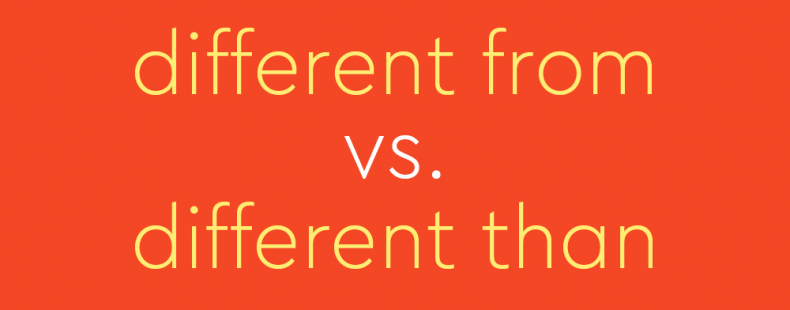Both different from and different than are accepted in standard American English, and both have been in use for the last 300 years. But is one of these phrases more accepted than the other?
Which is correct: “different from” or “different than”?
In formal writing, different from is generally preferred over different than. This preference has to do, in part, with the historical use of the word than. This term entered English as a conjunction often used with comparative adjectives, such as better, taller, shorter, warmer, lesser, and more, to introduce the second element in a comparison. Different is not a comparative adjective. Thus, when different than first started appearing in English, it sounded grating or less natural to discerning ears.
From has been used with the verb differ since at least the 1500s, which paved the way for different from to be readily accepted into the lexicon. William Shakespeare used different from in The Comedy of Errors: “This week he hath been heavy, sour, sad, / And much different from the man he was…” Other pairings have popped up over the years, including different against, but different from and different than remain the two most useful among English speakers.
Different than is common in American English, but might sound strange to British ears, and in the UK, different to is a common alternative that is seldom used in the US.
How to use “different from” in a sentence
When in doubt, stick with different from. From works best when what follows is a noun or noun phrase: My grandmother looks different from that old photograph of her. You might also say:
- Your explanation of what happened is very different from Carla’s account.
- The focus on customer service makes this store different from all others.
- The smallest dog was quieter and seemed different from his rowdy brothers.
How to use “different than” in a sentence
However, note that there is a time and place for different than. When what follows is a clause, than can be the more elegant choice: My grandmother looks different than I remember. You might also say:
- This trip has been different than the one I took to London 10 years ago, when I spent most of my time in the pubs.
- My sister is different than she was last year and has matured.
- The jacket we bought is no different than the pricier one at the boutique.














